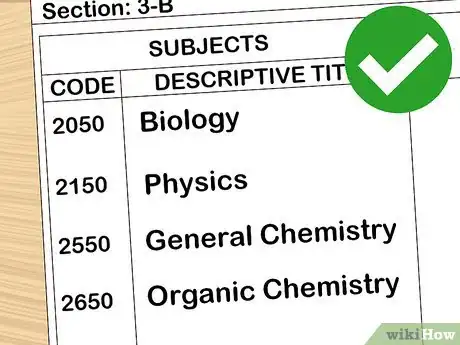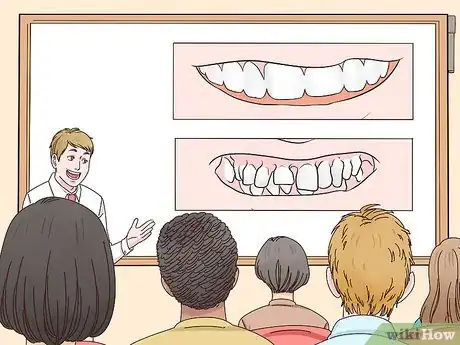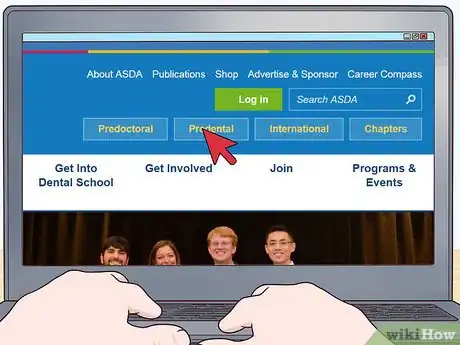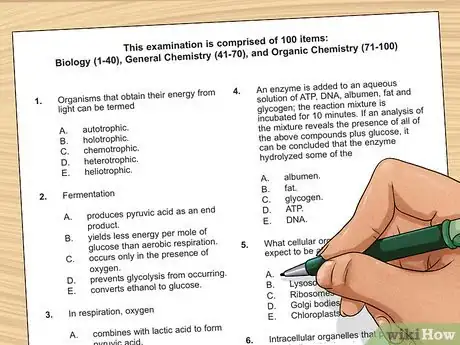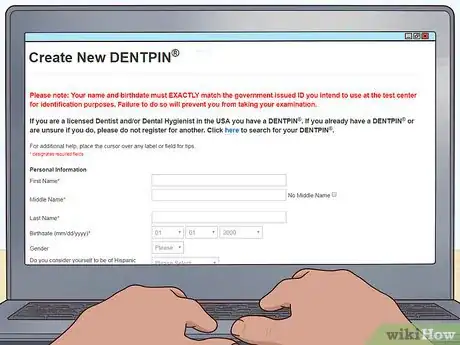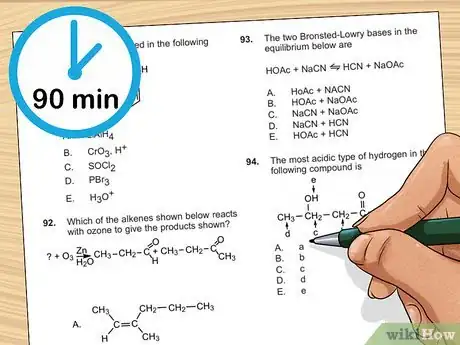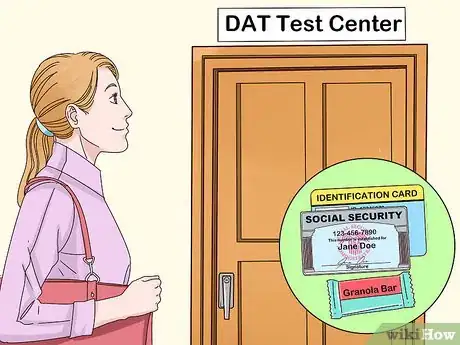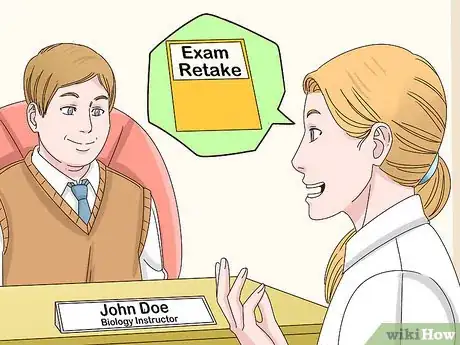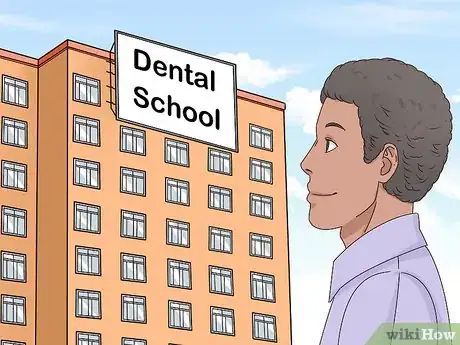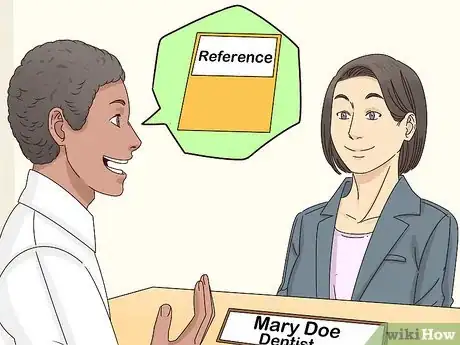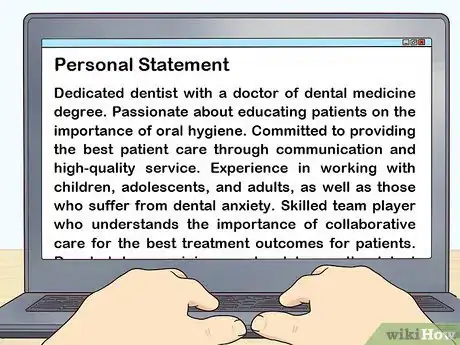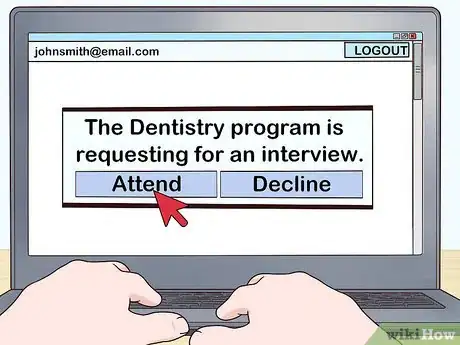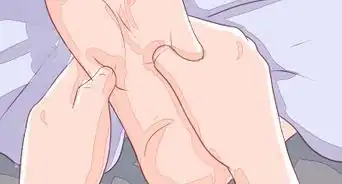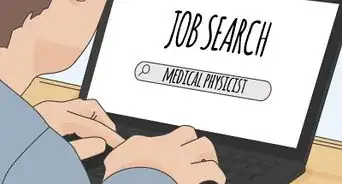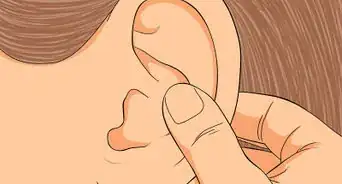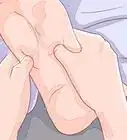This article was co-authored by Lewis Chen, DDS, FICOI, FIADFE. Dr. Lewis Chen is a licensed Dentist in both New York and New Jersey, specializing in providing high-quality oral care in the form of preventative care. He holds an Economics degree from New York University. Dr. Chen earned his doctorate at Columbia University College of Dental Medicine. He graduated top of his class with the highest honors and distinction and was nominated and inducted into the only renowned, national dental honor society, Omicron Kappa Upsilon (OKU). He then completed a comprehensive training program at the Bronx VA Medical Center and, shortly after, decided to pursue multiple practice ownership and management. Dr. Chen has acquired numerous accolades over the years, including New York Academy of Dentistry Exemplary Professional Conduct Award, Academy of General Dentistry Outstanding General Practitioner Award, American Academy of Implant Dentistry Award, and Pierre Fauchard Foundation Award.
There are 13 references cited in this article, which can be found at the bottom of the page.
This article has been viewed 14,114 times.
Dentistry is a challenging, rewarding field, and getting into a dental program is a complex process. To prepare for dental school, take science courses in college, and shadow dentists to gain firsthand experience. About a year before you graduate from college, take the Dental Admission Test, and begin crafting your application. With patience and attention to detail, you can put together a competitive application and take the first steps toward becoming a practicing dentist.
Steps
Completing Your Undergraduate Education
-
1Take prerequisite lab science courses as an undergraduate. While some schools consider applicants who haven’t gone to college, a 4-year undergraduate degree is usually necessary.[1] Majoring in a science, such as biology, is helpful, but not a requirement. However, you do need to complete required pre-dental coursework in the sciences.[2]
- Required coursework varies by dental program, but generally includes 8 credit hours each of biology, physics, general chemistry, and organic chemistry.
- Business classes can also help you learn the basics of running a successful practice.
- Talk to your academic adviser about taking courses that will best prepare you for a dental program.
-
2Shadow multiple dentists for at least 100 hours. Ask your personal dentist if you can shadow them. If that’s not possible, ask them to recommend another dentist to shadow, or contact a local dental school. When you shadow, you’ll observe procedures, learn terminology, and have the opportunity to ask dentists about their profession.[3]
- Many dental schools require applicants to shadow multiple dentists for a total of 100 hours. Shadow more than 1 dentist so you can learn about how different practices are run.
Ask questions such as: “What are the most rewarding and most challenging aspects of your career? Is there anything you would change about the practice of dentistry? Do you have any advice about succeeding in dental school?”
Advertisement -
3Participate in extracurricular activities. Activities related to science and research look particularly good on a dental school application. If possible, join pre-dental, biology, or health occupations student clubs. Activities unrelated to the sciences are still beneficial and show you’re a well-rounded student.[4]
- See if any science professors are accepting research assistants. Participating in scientific research firsthand will make you a more competitive applicant.
- Keep in mind your grades are your priority. Don’t take on so many extracurricular activities that you have a hard time keeping up your GPA.
-
4Join a dental students association. Become a member of a national dental student association to seize a host of educational opportunities. In addition to looking good on your application, a membership will allow you to attend chapter events, where you can interact with practicing dentists and current dental students. You'll also have access to helpful resources, including valuable application guides.[5]
- For instance, join the American Student Dental Organization (ASDA) as a pre-dental student member at https://www.asdanet.org/index/join. As of 2018, annual dues are $71 (U.S.).
Passing the DAT
-
1Take the Dental Admission Test (DAT) after your junior year in college. The Dental Admission Test is required by dental schools in the U.S., and most applicants take it during or soon after their junior year. The Dental Admissions test consists of four sections:[6]
- Survey of the Natural Sciences: 100 questions on biology, chemistry, and organic chemistry.
- Perceptual Ability: 90 questions on spatial reasoning that are a bit like mini mind games.
- Reading Comprehension: 50 questions on selected passages that cover a range of topics.
- Quantitative Reasoning: 40 questions on algebra, data analysis, probability, and statistics.
- The DAT is synonymous with the MCAT for med school.[7]
-
2Obtain a DENTPIN in order to register for the DAT. Head to the DENTPIN registration page. Enter your personal information, including your name, date of birth, gender, ethnicity, residential address, and email address, to receive a DENTPIN via email. Then, go to the DAT registration page, enter your DENTPIN and personal information, and pay the registration fee, which is $415 (U.S., as of 2018).[8]
- Access the DENTPIN registration site at https://dts.ada.org/CustomerServices_ADA/NewUser.aspx?transaction=DAT.
- Register for the DAT at https://dts.ada.org/login/login__ADA.aspx.
-
3Start studying at least 3 or 4 months before the exam. Develop a routine and try to study for at least 1 to 2 hours per day. Concentrate on 1 section at a time. For instance, work on survey of the sciences for 3 to 4 weeks, then move on to perceptual ability.[9]
- Focus your studies on areas that gave you trouble in school. For instance, if you did great in biology but struggled in organic chemistry, spend more time studying the latter.
- The perceptual ability test is difficult, so devote about a third of your total study time to it. Practice exams with solutions and explanations are a worthy investment, especially for this section of the exam.
- For sections 3 and 4, freshen up on your math skills, and read complex passages and practice identifying how authors’ structure arguments. Spend less time studying for reading comprehension and quantitative reasoning, which don’t require quite as much prep as survey of the sciences and perceptual abilities.
-
4Time yourself when you take practice exams. Find free practice exams online or invest in a paid exam with detailed explanations and solutions. When you take practice exams, time yourself to simulate actual test conditions.[10]
- The time limit for survey of the sciences is 90 minutes; it’s 60 minutes for perceptual aptitude and reading comprehension, and 40 minutes for quantitative reasoning.
- Finish studying a section of the exam, such as the science survey, then take the practice exam for that section. As the test date draws nearer, begin taking the full 4 ½ hour practice exam.
- Find practice exams and other free and paid resources on the American Dental Association’s test prep page at https://www.ada.org/en/education-careers/dental-admission-test/test-preparation.
-
5Arrive early on test day with 2 forms of ID and a snack. Bring a current, government-issued photo ID, as well as a second ID with your signature, such your Social Security card. Arrive to the test center at least 30 minutes early to ensure you have time to check in and clear security.[11]
- Since the exam takes 4 ½ hours, bring a snack, like a granola bar, and a bottled drink, which you’ll store in an assigned locker. You’ll be able to eat your snack, stretch, and walk around during the 15-minute break midway through the exam.
Test taking tips: Get a good night’s sleep and have a good breakfast before the exam. Answer easy questions first, then move on to more difficult questions. There’s no penalty for incorrect answers, so you’re better off guessing than leaving a question blank.
-
6Retake the test up to 2 more times, if necessary. Consult your academic adviser about retaking the test if your overall score is below a 17 or 18. You can retake the test after 90 days, and you're allowed take the test a total of 3 times. You’ll need to pay the non-refundable fee each time you take the exam.[12]
- Adjust your study habits before retaking the test. Review your score report, focus on sections that gave you trouble, and consider investing in a DAT prep course.
- For most dental programs, enrolled students' average DAT score is between 19 and 21. If your score is still under 17 or 18 after taking the test 3 times, you can still apply to dental programs. The DAT score is important, but it's not a deal breaker. Schools will take all aspects of your application into consideration.
Creating a Compelling Application
-
1Tour schools and consult your adviser to choose prospective programs. Check out dental programs’ websites and come up with a list of reach and safety schools. Talk to your adviser about which programs you’d have a strong chance of getting into and which might be more difficult. Visit schools, meet with faculty, and take programs’ areas of focus into account.[13]
- Consider location and cost as well. Decide if you’re able to relocate and if you can afford the cost of living in the city where a school is located. For help with financing, contact prospective schools’ financial aid departments and discuss available resources.
-
2Begin your application at least a year before you graduate from college. Aim to submit your application as early as possible. Applications are accepted beginning in May or June, and stronger programs prefer submissions by July. All materials must be submitted by February of the following year; if accepted, you’d then start your studies in that fall.[14]
- You’ll need to submit the application form, your official undergraduate transcripts, a personal essay, 4 letters of recommendation, a resume or CV, your DAT scores, and verification of your dental shadowing hours. Apply to a dental program in the U.S. through the Associated American Dental Schools Application Service (AADSAS) at https://www.adea.org/DENTAL_EDUCATION_PATHWAYS/AADSAS/applicants/Pages/default.aspx.
- As of 2018, the application fee is $245 for the first dental school and $102 for each additional school.
-
3Ask 4 references to write letters of recommendation. You’ll need letters of recommendation from a general dentist, 2 science professors, and a professional reference. Choose professors, a dentist you’ve shadowed, an employer, or other individuals who are familiar with your academic work, character, and interest in dentistry.
- Ask for letters of recommendation early in the application process so your references have plenty of time to submit their letters.
-
4Craft a personal statement that conveys your passion for dentistry. A personal statement is a 1-page essay (4500 characters or less) that relates who you are and why you’ve chosen to pursue a career in dentistry. For a statement that stands out, focus on a specific experience that sparked your passion for dentistry.[15]
- Ask your references and other professors to read your essay and offer feedback. To ensure you have time to get feedback and make revisions, begin developing your essay a few months before AADSAS begins accepting applications.
- Be sure to proofread your work carefully to ensure it’s absolutely free of any spelling or grammatical errors.
-
5Attend admissions interviews, if necessary. After you’ve submitted your materials, a prospective program may request an interview, which is typically conducted at the school. The purpose of an interview is to get to know you and assess your character, ability to communicate, and desire to help patients. Additionally, you’ll have the opportunity to ask questions about the school.[16]
- You’ll find out if you were accepted after the interview. Schools begin announcing their decisions starting on December 1. So, for example, if you submitted your application in July of 2018, you’d find out if you were accepted between December 2018 and February 2019, and you’d start the program in fall of 2019.[17]
Interview tips: Try to relax and be yourself during an interview. Ask a dentist you've shadowed to help you prepare. To brainstorm, ask yourself questions like, “How have I responded to challenges, and how have obstacles made me stronger? What inspires me to persevere, and what drives me to pursue dentistry?”
Expert Q&A
-
QuestionHow long does it take to go through dental school?
 Lewis Chen, DDS, FICOI, FIADFEDr. Lewis Chen is a licensed Dentist in both New York and New Jersey, specializing in providing high-quality oral care in the form of preventative care. He holds an Economics degree from New York University. Dr. Chen earned his doctorate at Columbia University College of Dental Medicine. He graduated top of his class with the highest honors and distinction and was nominated and inducted into the only renowned, national dental honor society, Omicron Kappa Upsilon (OKU). He then completed a comprehensive training program at the Bronx VA Medical Center and, shortly after, decided to pursue multiple practice ownership and management. Dr. Chen has acquired numerous accolades over the years, including New York Academy of Dentistry Exemplary Professional Conduct Award, Academy of General Dentistry Outstanding General Practitioner Award, American Academy of Implant Dentistry Award, and Pierre Fauchard Foundation Award.
Lewis Chen, DDS, FICOI, FIADFEDr. Lewis Chen is a licensed Dentist in both New York and New Jersey, specializing in providing high-quality oral care in the form of preventative care. He holds an Economics degree from New York University. Dr. Chen earned his doctorate at Columbia University College of Dental Medicine. He graduated top of his class with the highest honors and distinction and was nominated and inducted into the only renowned, national dental honor society, Omicron Kappa Upsilon (OKU). He then completed a comprehensive training program at the Bronx VA Medical Center and, shortly after, decided to pursue multiple practice ownership and management. Dr. Chen has acquired numerous accolades over the years, including New York Academy of Dentistry Exemplary Professional Conduct Award, Academy of General Dentistry Outstanding General Practitioner Award, American Academy of Implant Dentistry Award, and Pierre Fauchard Foundation Award.
Licensed Dentist By and large, dental school takes 4 years to complete. There are very few dental schools out there that require less than that.
By and large, dental school takes 4 years to complete. There are very few dental schools out there that require less than that. -
QuestionWhat kinds of dental fields can I specialize in?
 Lewis Chen, DDS, FICOI, FIADFEDr. Lewis Chen is a licensed Dentist in both New York and New Jersey, specializing in providing high-quality oral care in the form of preventative care. He holds an Economics degree from New York University. Dr. Chen earned his doctorate at Columbia University College of Dental Medicine. He graduated top of his class with the highest honors and distinction and was nominated and inducted into the only renowned, national dental honor society, Omicron Kappa Upsilon (OKU). He then completed a comprehensive training program at the Bronx VA Medical Center and, shortly after, decided to pursue multiple practice ownership and management. Dr. Chen has acquired numerous accolades over the years, including New York Academy of Dentistry Exemplary Professional Conduct Award, Academy of General Dentistry Outstanding General Practitioner Award, American Academy of Implant Dentistry Award, and Pierre Fauchard Foundation Award.
Lewis Chen, DDS, FICOI, FIADFEDr. Lewis Chen is a licensed Dentist in both New York and New Jersey, specializing in providing high-quality oral care in the form of preventative care. He holds an Economics degree from New York University. Dr. Chen earned his doctorate at Columbia University College of Dental Medicine. He graduated top of his class with the highest honors and distinction and was nominated and inducted into the only renowned, national dental honor society, Omicron Kappa Upsilon (OKU). He then completed a comprehensive training program at the Bronx VA Medical Center and, shortly after, decided to pursue multiple practice ownership and management. Dr. Chen has acquired numerous accolades over the years, including New York Academy of Dentistry Exemplary Professional Conduct Award, Academy of General Dentistry Outstanding General Practitioner Award, American Academy of Implant Dentistry Award, and Pierre Fauchard Foundation Award.
Licensed Dentist You can specialize in fields like oral surgery, orthodontics, periodontics, and endodontics, but they require additional training. You're not required to study these fields, but they're possible routes if you'd like to advance your education.
You can specialize in fields like oral surgery, orthodontics, periodontics, and endodontics, but they require additional training. You're not required to study these fields, but they're possible routes if you'd like to advance your education.
References
- ↑ Lewis Chen, DDS, FICOI, FIADFE. Licensed Dentist. Expert Interview. 11 May 2021.
- ↑ https://www.ada.org/en/education-careers/careers-in-dentistry/be-a-dentist/applying-for-dental-school
- ↑ https://www.adea.org/GoDental/Application_Prep/Preparing_for_Dental_School/Shadowing.aspx
- ↑ https://www.asdanet.org/index/get-into-dental-school/before-you-apply/predental-timeline
- ↑ https://www.asdanet.org/index/get-into-dental-school
- ↑ https://www.asdanet.org/index/get-into-dental-school/before-you-apply/preparing-for-the-dat
- ↑ Lewis Chen, DDS, FICOI, FIADFE. Licensed Dentist. Expert Interview. 11 May 2021.
- ↑ https://www.asdanet.org/index/get-into-dental-school/before-you-apply/preparing-for-the-dat
- ↑ http://www.asdablog.com/tailoring-your-dat-study-schedule/
- ↑ http://www.asdablog.com/a-comprehensive-list-of-dat-resources/
- ↑ https://www.asdanet.org/docs/member-resources/predental/day-of-dat.pdf?sfvrsn=4
- ↑ http://www.asdablog.com/how-to-prepare-to-retake-the-dat/
- ↑ https://www.ada.org/en/education-careers/careers-in-dentistry/be-a-dentist/applying-for-dental-school
- ↑ https://www.adea.org/DENTAL_EDUCATION_PATHWAYS/AADSAS/applicants/Pages/default.aspx
- ↑ https://www.asdanet.org/index/get-into-dental-school/applying-to-dental-school/crafting-your-personal-statement
- ↑ https://www.ada.org/en/education-careers/careers-in-dentistry/be-a-dentist/applying-for-dental-school
- ↑ https://www.adea.org/GoDental/Dental_Blogs/Advice_from_admissions_officers/Decision_Day_Part_I__Behind_the_Scenes_for_December_1.aspx
About This Article
If you want to go to dental school, gain experience and prepare application materials at least a year beforehand. Before going to dental school, you'll need to finish college. While you're there, complete any required pre-dental coursework in the sciences. You can also gain some necessary and rewarding experience by shadowing dentists. Ask your dentist if you can shadow them or contact your local dental school to see about shadowing some of their dentists. After your junior year in college, take the Dental Admission Test, which you’ll want to prepare for by studying a few hours a day for several months before the exam. In addition to the exam, start gathering your official undergraduate transcripts, a personal essay, 4 letters of recommendation, a resume, and your exam scores to round out your application. To learn how to write your personal statement for your dental school application, keep reading!
